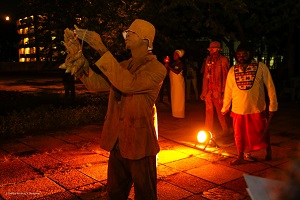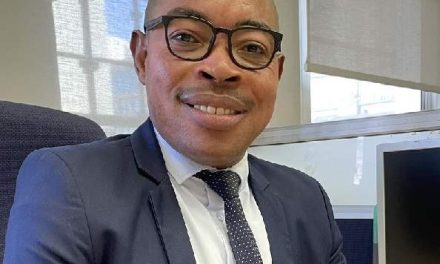
Goethe to present ‘Hidden’ at the Katutura Community Art Centre

The Goethe-Institut Namibia will present ‘Hidden’, an installation by local Choreographer Trixie Munyama and Director Christian Etongo from Cameroon, at the Katutura Community Art Centre on Friday 26 February, 19h00 and Saturday 27 February, 16h00.
The public is invited to attend the free installation and to connect with the creatives who have been on a physical and mental journey that resulted in the creation of an installation that highlights the differences and empowers the similarities of the two countries’ German colonial pasts.
‘Hidden’ compares the shared history and repercussions still present today of a German colonial era in Namibia and Cameroon, a process that according to choreographer Munyama, is important.
“The title reminds us that there have been painful events in our history that we must look into and work towards restoring our dignity and that of the nations,” she said.
She explained that through the incorporation of African traditions and rituals that existed before colonization, ‘Hidden’ aims to uncover the true story without detours and enlighten the audience for them to experience a sense of purification from a contemporary perspective.
“The act of German colonization is not fully addressed in Namibia and Cameroon because the apartheid and French tutelage are more recent, while it is important for us to acknowledge the collective trauma and find methods of dealing with it,” said Munyama.
Director Etongo and his previous work, After Tears that was staged in Cameroon during November 2019 and under the same project, is similar to ‘Hidden’.
“Our works employ the rituals of mourning through African spirituality, which brings us all together through a cultural practice we share with rest of the diaspora,” said Etongo.
He said they identified in each other through the discovery of Munyama’s previous works, The Mourning and The Mourning Citizen that explore the process of remembering the colonial past, deconstructing the events and mourning the pre- colonial past before developing a way forward.
“Arts and culture are important because they can have power over political, social and even religious matters that need to be addressed for a post-colonial nation to understand its past and present before working towards a more inclusive future,” he said.
Munyama and Etongo agree that Namibia and Cameroon share a similar colonial past and they, as creatives, have developed a richer and more substantial perspective of each other’s country, its intricacies and how the systems of colonization continue affecting all spheres of society.
“German colonization in both countries continues having a sociological, economic, cultural and psychological impact, which is not addressed, particularly in Namibia, because the capitalist agenda is the focus and colonization has become too politicised,” said Munyama.
Etongo concurs adding, “Colonialism is different in Cameroon because the German colonialism is viewed as beneficial due to infrastructure such as roads, a railway system and public buildings, while the French colonization is viewed as bad because of the recent cost of lives that some even define as a genocide.”













































